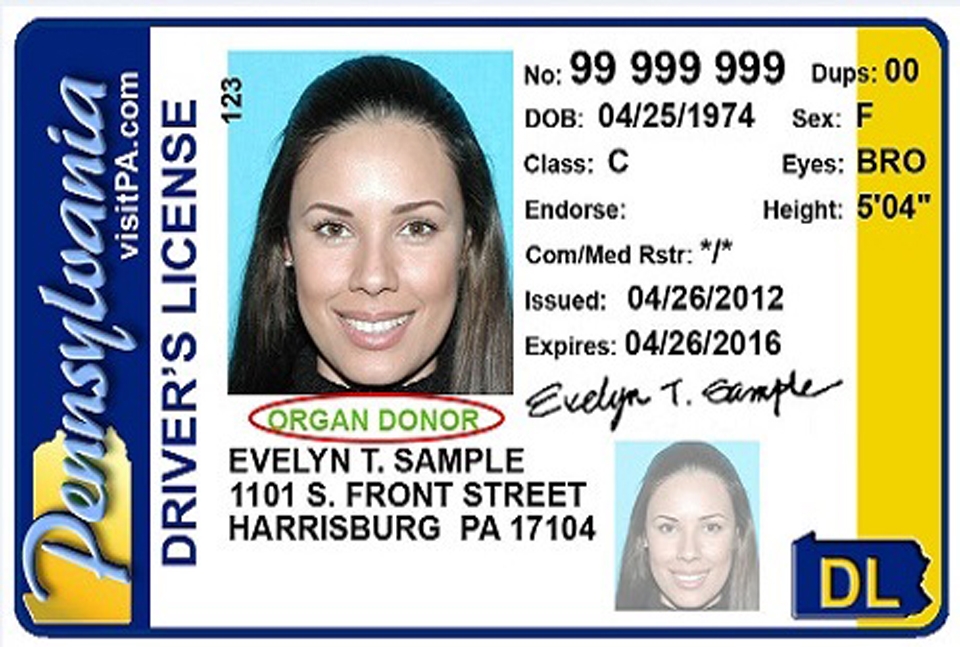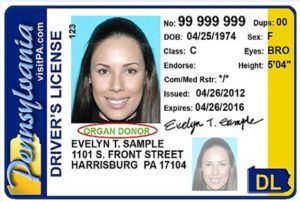

By Ollie Gratzinger | Staff Columnist
Anyone who’s had the joy of struggling through the TSA at the airport knows that the government doesn’t play around when it comes to national security. In fact, they tend to take great precaution in every federal matter, from airport security to determining who can enter what building and when they can enter it. It’s already a pretty complex process, but things are about to get a lot more complicated — especially for Pennsylvania residents.
According to the Pittsburgh Post-Gazette, Pennsylvania state licenses and ID cards will no longer be considered a valid form of federal identification.
Coming after the state’s refusal to comply with requirement changes that have been in the works for over a decade, residents of Pennsylvania will have to rely on passports or other alternative forms of identification to do anything that would usually require a federal ID, like entering government buildings or boarding commercial flights. The former will be effective on Jan. 30, 2017, with the latter coming into action the following year.
The law is called the Real ID Act of 2005, and it was passed after the 9/11 terrorist attacks as a way to improve national security. It requires all state identification cards to come equipped with anti-counterfeiting provisions and to store information like photographs in a database for use by federal officials.
The issue arises, though, in the fact that while most residents have a driver’s license or a state-issued ID, not everyone has a passport, military ID or border-crossing card. Passports can get pricy: For the booklet, the fee is $110. For the passport card, which allows for travel between Mexico, Canada, the Caribbean and Bermuda through land and sea ports only, it’s an additional $30 on top of the $110. There are processing fees and execution fees hidden in fine-print lines, and for that reason, a passport isn’t feasible for every resident of Pennsylvania.
Besides, not everyone has the desire to travel internationally. Why shell out upwards of $140 just to board your domestic flight when a driver’s license costs only around $30?
With that being said, why does Pennsylvania refuse to comply with the Real ID Act? Believe it or not, it isn’t just to complicate things for residents. A 2012 state law actually prohibits compliance with the Real ID Act on the grounds that it would not only establish a national ID opposed to our current state-by-state cards, but it also costs an arm and a leg: The Post Gazette estimated that the damage could amount to more than a quarter of a million dollars to replace all licenses and ID cards in the state.
Freshman Sydney Bittner says that the whole thing is making travel more complicated than it has to be.
“I like to fly, but I don’t have a passport,” Bittner said. “I never leave the country, so why would I need one? It’s stupid. I just go to Louisiana, and a flight already costs $400. I don’t want to have to pay an additional $200 for a passport when I don’t travel internationally.”
The cost of this law is more than financial, though. Another common concern among those wary of big government is the issue of privacy. With a compliant federl ID, personal information will be stored in what some call a “national database.” In order for the TSA and Department of Homeland Security to confirm a citizen’s identity, they need to harvest the information that would normally be kept only by the individual states. It isn’t the first time that citizens have been made to choose between security and a personal right privacy. Financial stresses aside, this law is leaving a bitter taste in the mouths of countless American citizens.
But what about non-citizen residents?
According to the DMV, immigrants and foreign nationals are worried about the effects that this law might have on their ability to live, work and thrive in the United States. The requirements for obtaining a new ID in the states that allow it (Pennsylvania is not one of them) are much stricter than they were before. Those without Social Security numbers or proof of temporary residence will be left behind by the law or even forced to return to their countries to renew their ID cards. While some cite that fact as a sign of the law’s success, I tend to disagree.
The coming years are sure to bring about changes to the already-controversial ID laws in the country, Pennsylvania specifically. We have until January 2018 to find a healthy medium between national security and personal freedom. In the meantime, the Pennsylvania government might be granted an extension on its compliance, meaning that the 2018 date could possibly be pushed back while officials sort through the political nitty-gritty.
At this point, all there’s left to do is hope and wait.




